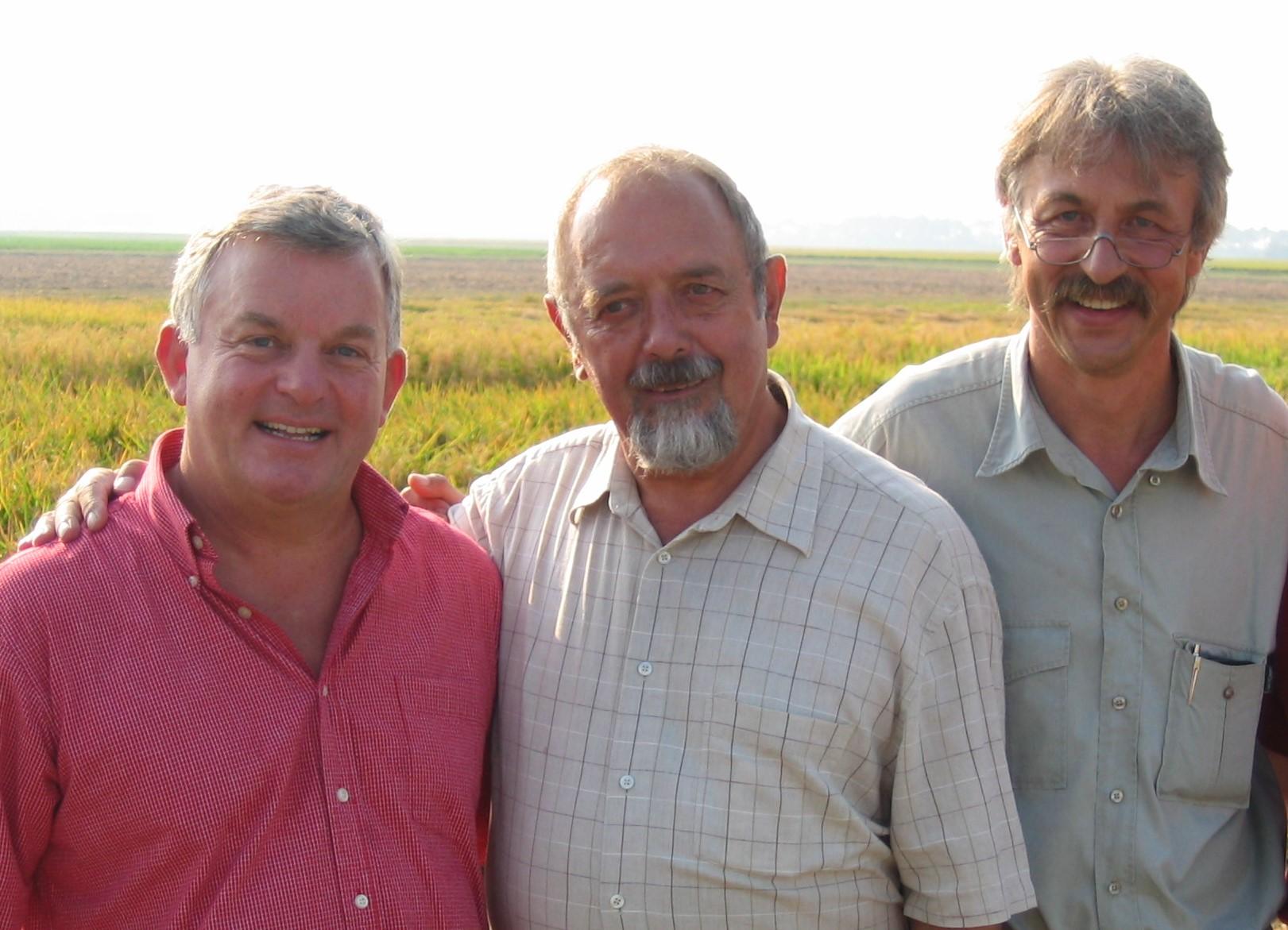April 16, 2015
The White House Office of Science and Technology Policy and the U.S. Patent and Trademark Office (USPTO) have announced the winners of the 2015 recipients of the Patents for Humanity Award, among them the Golden Rice Project.
Patents for Humanity is a USPTO program that recognizes patent owners and licensees working to improve global health and living standards for underserved populations. The program advances the President's global development agenda by recognizing private sector leaders who bring life-saving technologies to those in need, while showing how patents are an integral part of tackling the world's challenges.
The award has been bestowed upon the Golden Rice Project, in particular to Prof Ingo Potrykus, Prof Peter Beyer, and Dr Adrian Dubock. Dr Dubock will attend the official award ceremony on 20 April 2015, accompanied by the Golden Rice Huanitarian Board member Dr Rob Russell.

Back in 2001, in a ground-breaking humanitarian licensing arrangement, the three applicants (with Dubock then working for Syngenta) arranged in a cashless transaction for the defined commercial rights in US patent US 7,838,749 (and related patents) to be transferred to Syngenta. The inventors retained rights to the carefully and generously defined humanitarian applications. Syngenta, in return for its commercial options acquired, became obligated to support the humanitarian and non-profit vision of the inventors, and the inventors’ public sector licensees, rights to exploit any improvement, including as exemplified by patent application US20120042417 A1. Syngenta stated in 2004 that it had no continuing interest in commercial exploitation of the technology. Nevertheless, Syngenta’s obligations to support the inventors and their Golden Rice humanitarian project remain in place.
These arrangements demonstrate that patents have a very useful role, even for projects involving developing countries, where the protection of intellectual property rights may be less well developed. Without the inventors having applied for patents, it would not have been possible to discuss and develop the above mutually beneficial arrangements between the private and public sectors. Moreover, having the Golden Rice patent in place was crucial to obtaining access to the supporting technology package from other inventors.